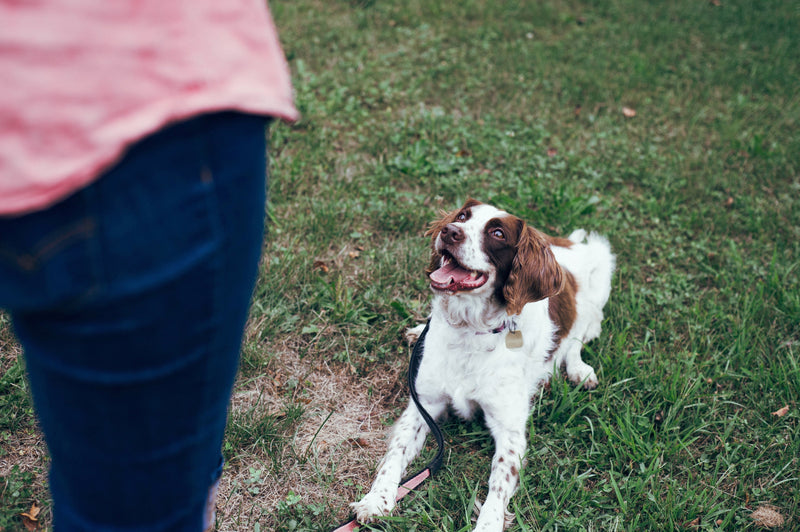
Dog Barking at Visitors: How to Handle This Challenge
Share
Every pet owner has likely asked themselves why their beloved dog barks at visitors. This common issue often leaves both the dog and owner distressed. Why do some dogs react exuberantly, and others with anxiety or fear? Understanding the triggers for your dog barking at visitors can enhance both your dog's well-being and the harmony in your home.
For health-conscious pet owners, a dog's mental health is as important as their physical health. Excessive barking could be a sign of social anxiety or misunderstood protective instincts. Fortunately, there are steps you can take to help your furry friendand regain some peace for yourself. Knowing how to effectively manage and reduce your dog's barking at guests is key to a peaceful household.

Identifying the Cause of Barking
Just like humans, dogs have diverse personalities, and their reasons for barking can vary widely. Some dogs may react to the excitement and energy of new people, while others may be frightened by unexpected events. It's essential to identify the cause of your dog's barking at visitors to address it successfully.
Some motivators behind barking include:
- Protective instincts
- Anxiety or fear
- Excitement
- Lack of socialization
- Territorial behavior
Once you've determined the root cause, you can employ specific training techniques tailored to your dog's needs. Consider visiting resources like Masterclass' Dog Training Guide
Training Techniques to Reduce Barking
Desensitization
Positive Reinforcement
Creating a Safe Space
For more in-depth training tips, explore AKC's Expert Tips for Dog Training
Promoting a Healthy Environment
Beyond training, a health-conscious pet owner will seek to maintain a nurturing environment for their dog. Ensure your dog gets ample exercise, mental stimulation, and social opportunities. Daily walks, interactive toys, and play dates with other dogs can all contribute to a well-rounded lifestyle. If you're curious about how to foster good habits from an early stage, check out the resources available on Small Door Vet. Looking for more insights? Visit dog barking at carsdog barking at cats
When to Seek Professional Help

Building a Relationship of Trust
FAQs
Why does my dog get so anxious around visitors?
How can I help my dog feel more comfortable around guests?
Are there any specific dog breeds more prone to visitor-related anxiety?
This article contains affiliate links. We may earn a commission at no extra cost to you.
